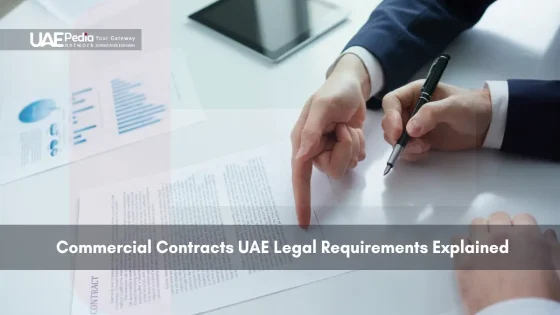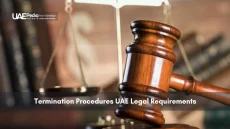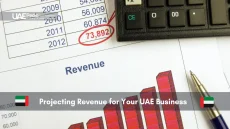Did you know the Emirates’ legal framework blends desert traditions with global business standards? Whether you’re finalizing a supplier agreement or launching a joint venture, understanding local rules turns contracts from paperwork into partnerships.
The UAE mixes civil law on the mainland with common law in hubs like DIFC and ADGM. This means your paperwork needs to match the region where you operate. Clear offers, mutual acceptance, and fair exchanges form the backbone of valid agreements here—Keep one narrative metaphor, remove or alternate others.
Electronic contracts and e‑signatures are expressly valid under multiple UAE laws—including Federal Law No. 1/2006, Decree‑Law No. 46/2021 (Electronic Transactions & Trust Services), and the Civil Transactions Law—making them enforceable if they meet reliability criteria. Want to skip the courtroom? Arbitration details matter as much as payment terms. For a deeper dive, explore this comprehensive guide covering everything from negotiation tactics to enforcement.
Key takeaways:
- Local laws shape contracts differently in mainland vs financial free zones
- Valid agreements require Offer, acceptance, and intention (a civil‑law analogue of ‘consideration’) are essential under UAE contract law
- Dispute clauses determine how conflicts get resolved
UAE 2025 Legal Landscape: Mainland vs. DIFC & ADGM Realities
Ever tried mixing Arabic coffee with English tea? The Emirates’ legal system pulls off this blend daily. Mainland agreements are still governed by Federal Law No. 5 of 1985 (UAE Civil Transactions Law), which was most recently amended in 2020. Notable judicial decisions since have reinforced contract enforcement in onshore courts.—think detailed civil code provisions covering everything from payment terms to service conditions. But cross into Dubai’s DIFC or Abu Dhabi’s ADGM, and you’ll find common law principles sipping espresso in glass towers.
Explore More: Exploring the Historical Forts and Castles of the UAE“
Dual Legal Systems: Civil Law vs. Common Law in the UAE
On the mainland, contracts follow Civil Code Article 125: clear offers, proper acceptance, and “consideration” (not just handshake deals). Want to sell dates at Deira Market? Your agreement needs Arabic text and notarization. But tech startups in DIFC? They draft in English, guided by laws resembling London’s financial rules.
Choosing Your Legal Playground
Smart businesses pick their battleground upfront. Free zones let you:
- Use English-language terms without translation
- Opt for common law’s flexible dispute resolution
- Bypass mainland notarization for faster deals
One logistics CEO told us:
“ADGM and DIFC remain arbitration favorites. DIFC Law No. 2 of 2025 (effective 15 Mar 2025) expanded interim relief powers and established a Mediation Centre; ADGM also strengthened its ADR arsenal in early 2025.
Whether you’re securing cloud services or property rights, matching your paperwork to the right jurisdiction is like choosing between desert safaris or yacht parties—both iconic, but very different vibes.
Related Topics: Employment Visa UAE Processing Time and Cost“
Must-Have Contract Essentials under UAE Law
Imagine building a house without cement—that’s an unsigned contract in the Emirates. Three ingredients bind agreements here: clear offers, solid acceptance, and fair exchange. Miss one, and your deal crumbles like stale baklava.
UAE Civil Code mandates three core elements for contract validity—offer, acceptance, and capacity/legal competence—as a fundamental requirement Ref.: “Alkabban (2023). 10 Crucial Aspects of Contract Law in the UAE.” [!]
The Trifecta: Offer, Handshake, Exchange
A tech startup offers app development for AED 50,000. The client says “yes” via email—boom, acceptance. Payment acts as the glue (consideration). But here’s the twist: Emirates law requires all three elements.
Who Can Shake Hands?
Minors can’t sign deals. Companies need authorized signatories. A Dubai lawyer shared:
“We once voided a catering contract because the ‘CEO’ was actually an intern with fancy business cards.”
| Element | Civil Code | Free Zones |
|---|---|---|
| Written Form | Often required | Flexible |
| Language | Arabic preferred | English accepted |
| Good Faith | Mandatory | Expected |
Oral agreements? Risky. A hotel owner learned this when a supplier denied their spoken deal for linen deliveries. Courts dismissed the case—no paper trail.
Under Federal Law No. 5 of 1985, only parties with legal capacity—excluding minors and legally incapacitated individuals—can enter enforceable contracts in the UAE Ref.: “Elaws UAE Civil Transactions Law (1985).” [!]
Smart partners always:
- Define payment timelines like flight schedules
- Specify exit clauses clearer than desert stars
- Date every page like fresh laban
Further Reading: Business Banking UAE Options for SMEs“
Best Practices for Drafting UAE Commercial Contracts
Think of drafting agreements here like preparing a perfect mezze platter—every ingredient must balance flavor and function. Start by defining deliverables as precisely as saffron threads in biryani. A logistics firm learned this when vague “timely delivery” terms led to a 3-month dispute over delayed shipments.
Blueprint for Bulletproof Terms
Local lawyers swear by three rules: specificity beats elegance, deadlines need dates, and payment terms require currency clarity. One construction company avoided $120k in losses by specifying “AED-only payments within 14 days” rather than “prompt settlement.”
| Do | Don’t |
|---|---|
| Define “force majeure” with local examples (sandstorms, port closures) | Use phrases like “industry standards” without specifics |
| List authorized signatories with Emirates ID numbers | Assume oral amendments hold weight |
| Include sunset clauses for long-term service agreements | Overload with legal jargon from foreign templates |
The Dance of Deal-Making
Negotiations here blend Bedouin hospitality with corporate savvy. A tech founder shared:
“Our ADGM partnership almost collapsed until we shifted from emails to face-to-face majlis meetings—trust grew faster than desert flowers after rain.”
Key moves: allow time for relationship-building, avoid public “no”s, and always keep dates flexible during Ramadan. Remember—what’s signed matters more than what’s promised over karak tea.
You Might Also Like: Business Mentor UAE Finding the Right Advisor“
Dispute Resolution in 2025: ADR & Court Reform
Resolving business disagreements here feels like navigating desert trails—you need both a compass and knowledge of the stars. When deals go sideways, local laws offer multiple paths to set things right.
Remedies for Breach and Specific Performance
Picture a supplier missing delivery dates for restaurant equipment. Under Federal Law No. 5, you could claim damages or demand they fulfill their obligations. Courts often order specific performance for unique items—like custom-made kitchen gear you can’t buy elsewhere.
| Remedy | Best For | Timeframe |
|---|---|---|
| Monetary Damages | Common service failures | 3-6 months |
| Contract Termination | Repeated violations | Immediate |
| Performance Orders | Unique goods/services | 6-12 months |
Mainland courts routinely order specific performance for unique or irreplaceable goods under Civil Code provisions—offering a direct remedy beyond monetary compensation Ref.: “RouSan Law (2022). Federal Law No. 5 of 1985… discussion of specific performance.” [!]
Arbitration, DIFC/ADGM Courts, and Local Dispute Forums
Free zones flip the script. Since enactment of DIFC Law No. 2 of 2025 (effective 14 March 2025), DIFC Courts now deliver interim relief, streamlined enforcement, and new mediation services—still averaging ~90‑day resolutions—half the mainland timeline. As one legal advisor noted:
“Arbitration clauses under the New Commercial Agency Law let businesses avoid public hearings while keeping trade secrets safe.”
Smart partners often choose:
- English-language arbitration for international deals
- Local forums for quick resolutions under AED 500k
- Hybrid clauses allowing forum switches if talks stall
Whether you’re protecting property rights or service terms, clear dispute provisions work like GPS—guiding you through legal sandstorms to fair solutions.
Related Articles: Employee Compensation UAE Packages and Components“
Free Zone vs. Mainland Contracts: What to Know
Navigating free zone agreements feels like solving a spice market puzzle—every stall has its own rules. While mainland deals follow federal laws, free zones and agency partnerships require extra steps to stay compliant. Let’s unpack the essentials.
Registration and Notarization Requirements
Not all contracts are created equal here. Real estate deals in Dubai? Mandatory Arabic registration. Employment agreements in ADGM? English suffices. Key differences:
- Local agency contracts must be filed with the Ministry of Economy within 60 days
- Free zone property leases need dual-language stamps
- Government service agreements require Chamber of Commerce attestation
Government, Employment, and Real Estate Contract Nuances
A tech firm learned this hard way: their Sharjah free zone office lease lacked Arabic clauses, delaying their licensing approval by 8 weeks. Industry-specific traps to avoid:
| Sector | Unique Rule | Penalty |
|---|---|---|
| Healthcare | MoH pre-approval for equipment leases | Fines up to AED 50k |
| Construction | Labor accommodation clauses | Project halts |
| Retail | Arabic product labeling in agency deals | Import bans |
Adhering to Regulatory Bodies and Ministry Guidelines
The New Commercial Agency Law (No. 3 of 2022) reshaped the game. As legal advisor Fatima Al-Mansoori notes:
“Companies must now register exclusive agreements in the Commercial Agencies Register—skip this, and termination becomes a sandstorm.”
Smart strategies include:
- Using ministry-approved templates for service contracts
- Scheduling annual compliance audits
- Training signatories on free zone vs mainland rules
Practical Guidance on Drafting, Terminating, and Enforcing Contracts
Picture termination clauses like date palm harvests—timing matters, and everyone needs clear rules. Crafting airtight exit strategies protects both parties when business winds shift. Start by defining triggers as precisely as sunset times: missed payments, ethics violations, or force majeure events like port closures.
Termination Clauses and Notification Periods
Local laws require written notice periods—30 to 90 days is typical. A logistics company learned this when trying to end a warehouse lease early. Their email notice lacked specific breach details, leading to a 4-month court dispute.
| Scenario | Notice Period | Enforcement Tip |
|---|---|---|
| Payment Default | 14 days | Send via registered mail |
| Force Majeure | 30 days | Define “act of God” locally |
| Mutual Agreement | Immediate | Get dual signatures |
Three steps to bulletproof your exit plan:
- Map termination triggers like delivery checkpoints
- Specify cure periods shorter than contract lifespans
- Require written confirmation—SMS won’t cut it
“Always include arbitration details in termination clauses,” advises Dubai legal consultant Amir Khalfan. “It’s cheaper than court battles and keeps disputes private.”
Watch for cultural nuances. During Ramadan, extend deadlines by 10-15 days—courts often side with this goodwill gesture. And remember: exit clauses should protect interests without feeling like prison sentences.
Pro tip: Use sunset clauses for long-term agreements. They automatically end deals after set periods unless both parties renew—like subscription services for business partnerships.
Navigating UAE Commercial Contracts
Ever watched a falcon return to its handler? Crafting agreements here requires similar precision—know when to soar and when to land details. The Emirates’ legal landscape rewards those who blend cultural awareness with technical rigor.
Three pillars stand firm across all deals: clear terms agreed upon by both parties, jurisdiction choices matching your goals, and dispute clauses sharper than Bedouin coffee. Whether navigating mainland requirements or free zone flexibility, your paperwork should reflect both ambition and caution.
Smart partners treat arbitration details like desert water reserves—vital for survival when conflicts arise. Local laws favor written clarity over handshake promises, especially for property or agency arrangements. One misstep we’ve seen? Assuming verbal amendments hold weight during Ramadan negotiations.
View this guide as your first compass—not the full map. Complex circumstances demand expert guidance, particularly for cross-border interests or shifting regulatory requirements. Our team at uaepedia.net stays updated on every legal sunset and sunrise, ready to help you draft agreements that withstand shifting sands.
Next step? Bookmark our interactive checklist for stress-free compliance. Because in the Emirates’ fast-moving markets, the best deals marry preparation with possibility.
The UAE blends civil law principles from its Federal Civil Code with common law elements in free zones like DIFC and ADGM. This mix means contracts must balance codified rules with case law traditions—especially when involving cross-border parties or arbitration clauses.
A> While some verbal arrangements are recognized, written terms signed by both parties are strongly advised. Certain agreements—like property deals or agency relationships—require notarization or Ministry of Economy registration to be enforceable. Always get it in ink!
A> Zones like Dubai Multi Commodities Centre (DMCC) or Abu Dhabi Global Market (ADGM) operate under separate regulations. Contracts here might use English law, require specific dispute resolution steps, or mandate local partner structures. Always check zone-specific guidelines before drafting.
A> Many modern agreements now include mandatory mediation clauses through centers like ADRCC Dubai. If arbitration fails, DIFC Courts often handle cases faster than mainland venues. However, always define timelines and penalties clearly upfront to avoid ambiguity.
A> Termination rights depend on your clauses! UAE law allows ending contracts for material breaches, mutual consent, or predefined triggers (like missed payments). Include notice periods—typically 30-90 days—and document all communications to protect both sides.
A> Cultural sensitivity matters. Avoid overly aggressive penalty clauses; Emirati courts may deem them unfair. Phrases implying permanent exclusivity could clash with Commercial Agencies Law provisions. Work with a local legal advisor to balance firmness with respect.
A> Yes, since Federal Decree-Law No. 46/2021 passed! E-signatures are valid for most agreements except real estate, marriage contracts, or wills. Use secure platforms approved by the Telecommunications Regulatory Authority for full compliance.


















